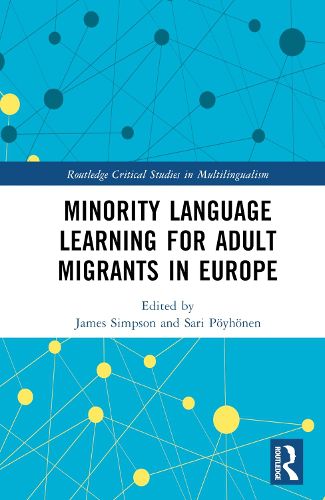Readings Newsletter
Become a Readings Member to make your shopping experience even easier.
Sign in or sign up for free!
You’re not far away from qualifying for FREE standard shipping within Australia
You’ve qualified for FREE standard shipping within Australia
The cart is loading…






This collection examines the learning and teaching of minority languages for adult migrants in Europe, with studies featuring perspectives from adult migrants themselves as well as local authorities, teachers, education planners and representatives from working life.
The volume provides context on the attitudes and ideologies which inform adult migrant language education in different minority languages in Europe. Adult migrant language learners are understood here as newcomers settling and living in regions where the minority language is politically acknowledged and societally significant. The studies presented in the chapters are all original, and most are based on qualitative data such as interviews, ethnographic observations and policy documents. Some authors draw upon census and register data and surveys. The book is designed to be relatable to policy formation and implementation in other national contexts, in Europe and beyond.
This book will be of interest to postgraduate students and researchers in language education, language and migration, language and mobility, minority language studies, language policy and linguistic ethnography, as well as language policy professionals.
$9.00 standard shipping within Australia
FREE standard shipping within Australia for orders over $100.00
Express & International shipping calculated at checkout
This collection examines the learning and teaching of minority languages for adult migrants in Europe, with studies featuring perspectives from adult migrants themselves as well as local authorities, teachers, education planners and representatives from working life.
The volume provides context on the attitudes and ideologies which inform adult migrant language education in different minority languages in Europe. Adult migrant language learners are understood here as newcomers settling and living in regions where the minority language is politically acknowledged and societally significant. The studies presented in the chapters are all original, and most are based on qualitative data such as interviews, ethnographic observations and policy documents. Some authors draw upon census and register data and surveys. The book is designed to be relatable to policy formation and implementation in other national contexts, in Europe and beyond.
This book will be of interest to postgraduate students and researchers in language education, language and migration, language and mobility, minority language studies, language policy and linguistic ethnography, as well as language policy professionals.